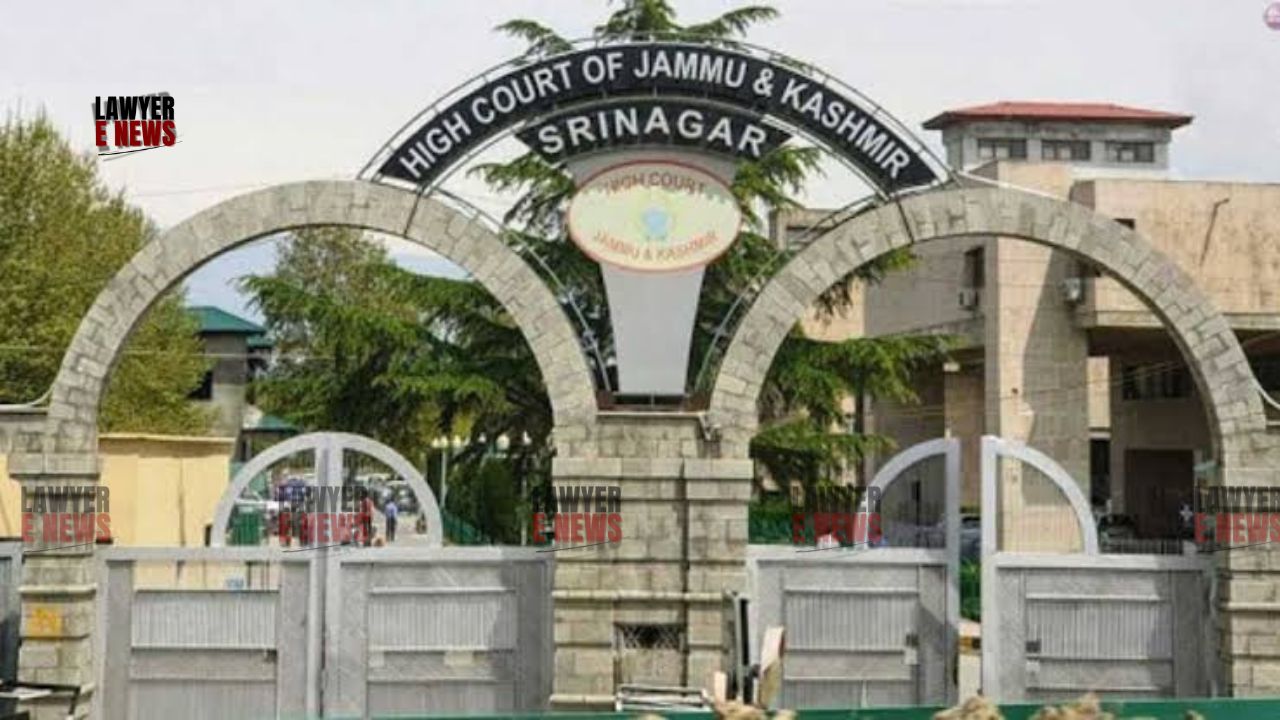-
by Admin
15 February 2026 2:36 AM



Conviction under Section 307 RPC reduced from seven to three years; conviction under Arms Act set aside due to insufficient evidence. The High Court of Jammu & Kashmir and Ladakh has reduced the sentence of the appellants in a high-profile attempted murder case, upholding their conviction under Section 307 of the Ranbir Penal Code (RPC) but reducing their sentence from seven years to three years. The judgment, delivered by Justice Sanjay Dhar, also set aside the conviction under the Arms Act due to lack of evidence regarding weapon dimensions.
On June 7, 1998, the appellants—Lakhbir Singh, Jasbir Singh, Raghubir Singh, and Makhan Singh—attacked Surinder Singh and his grandmother, Guran Kour, with swords and a hockey stick. The attack, allegedly motivated by suspicions of an illicit affair, resulted in severe injuries to Surinder Singh, including the amputation of two fingers. The trial court had convicted the appellants under Sections 307, 324, 34 RPC and Section 4/25 of the Arms Act, sentencing them to varying terms of imprisonment and fines.
The court emphasized the reliability of the injured eyewitnesses, Surinder Singh and Guran Kour. “The presence of an injured eyewitness at the time and place of the occurrence cannot be doubted unless there are material contradictions in his deposition,” Justice Dhar noted, citing principles established by the Supreme Court.
Despite minor inconsistencies regarding the type of weapons and the sequence of events, the court found the testimonies of the injured eyewitnesses and another eyewitness, Rajinder Kour, credible and reliable. “Minor discrepancies on trivial matters not touching the core of the case… would not ordinarily permit rejection of the evidence as a whole,” the judgment stated.
The medical evidence corroborated the injuries described by the victims. The court noted, “The injuries received by both the injured are possible by sharp-edged weapons and some of these injuries are also possible by blunt object, which means that the version of the injured that they were attacked by swords and hockey stands corroborated by the medical evidence on record.”
Addressing the admissibility issues of weapon recovery, the court acknowledged that the weapons were not recovered through a disclosure statement, rendering them inadmissible. However, this did not affect the overall conviction due to the strong eyewitness testimony.
The appellants’ plea for probation under the J&K Probation of Offenders Act was denied. Justice Dhar clarified, “The provisions of Section 4 of the Probation of Offenders Act would not come into play in the instant case,” citing the Supreme Court precedent that offenders convicted of crimes punishable with life imprisonment are not eligible for probation.
Justice Dhar extensively discussed the principles of evaluating evidence in cases involving grievous injuries. “The evidence of injured witness has greater evidentiary value and unless compelling reasons exist, their statements are not to be discarded lightly,” the court reiterated, emphasizing the principles laid down by the Supreme Court.
Justice Dhar remarked, “The broad substratum of the prosecution version must be taken into consideration, and discrepancies which normally creep due to loss of memory with passage of time should be discarded.”
The High Court’s decision to reduce the sentence while upholding the conviction under Sections 307 and 324 RPC highlights the judiciary’s balanced approach in ensuring justice. By setting aside the conviction under the Arms Act and reducing the imprisonment term, the court acknowledged both the severity of the crime and the prolonged legal battle faced by the appellants. This judgment underscores the importance of reliable eyewitness testimony and medical evidence in securing convictions in violent crime cases.
Date of Decision: July 4, 2024
Lakhbir Singh & Ors. V. State of J&K
